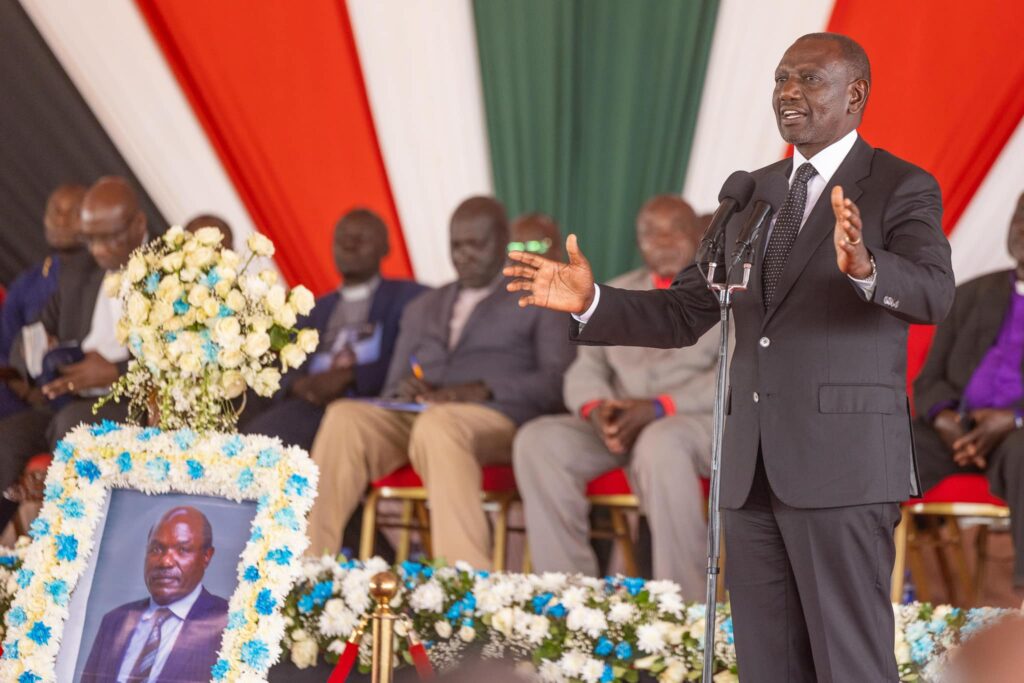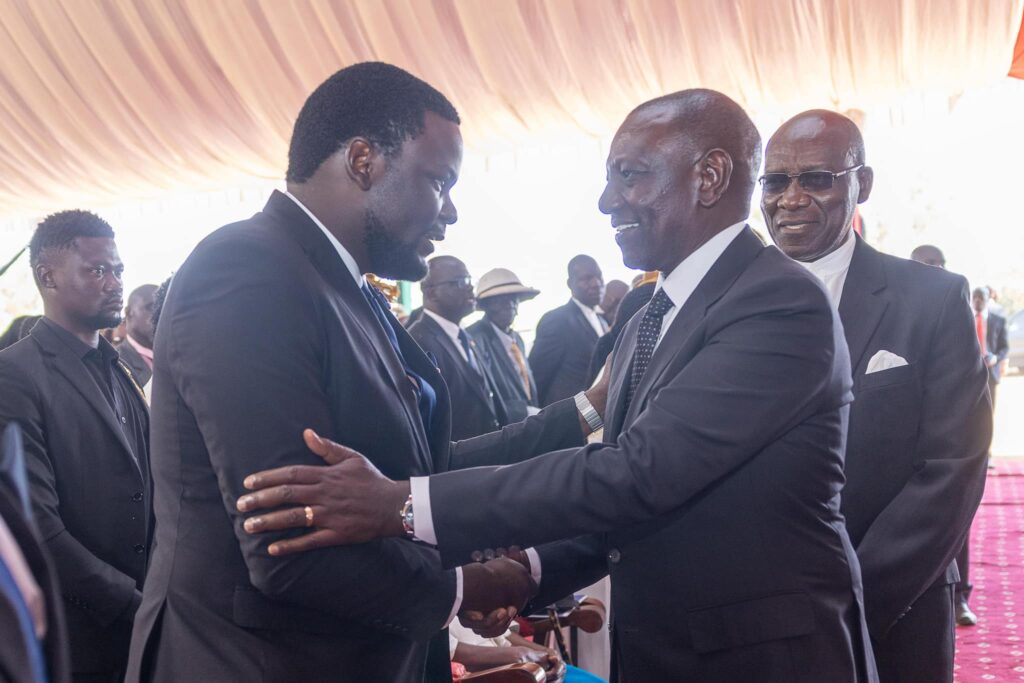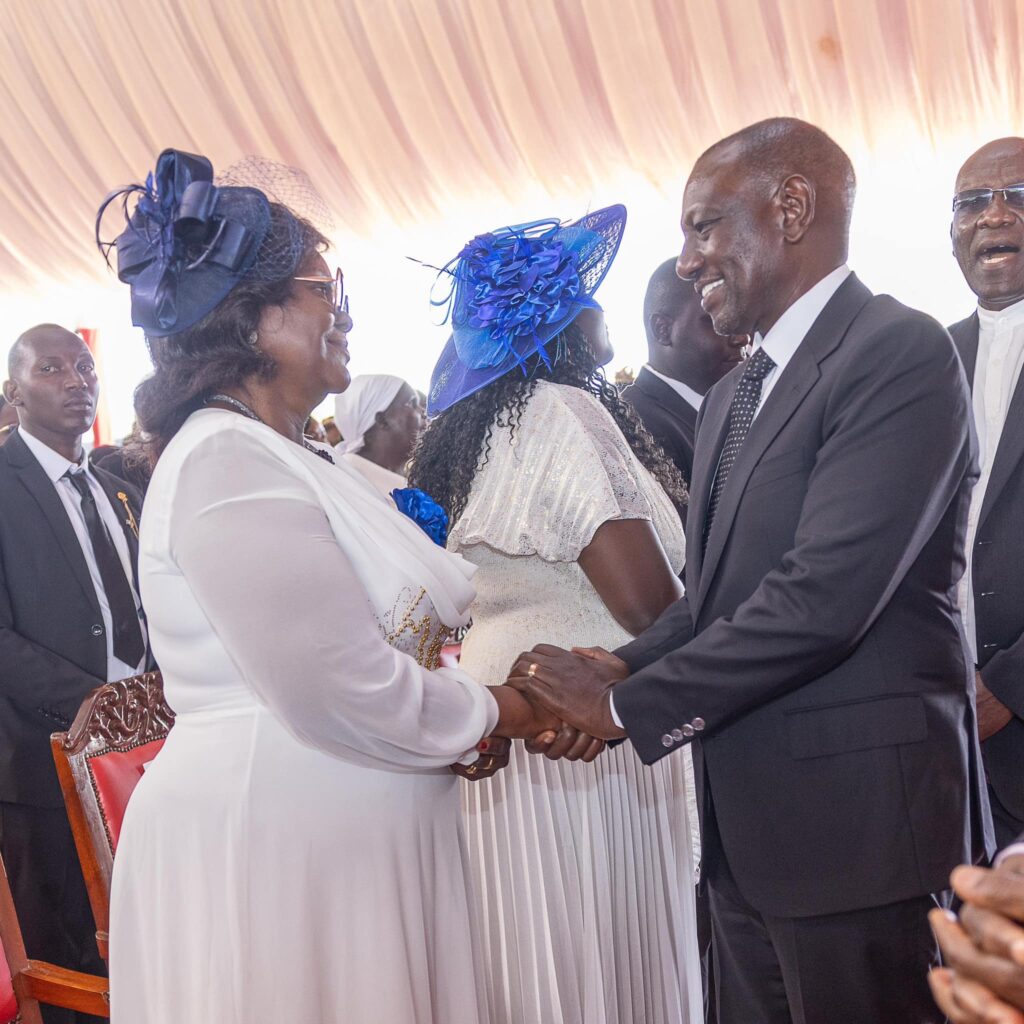
Wafula Chebukati, the former Chairperson of Kenya’s Independent Electoral and Boundaries Commission (IEBC), has left an indelible mark on Kenya’s electoral process. His tenure was marked by unwavering integrity, resilience in the face of political pressure, and a firm commitment to upholding democracy. In a recent address during his burial, President William Ruto paid tribute to Chebukati, highlighting his role in ensuring free and fair elections in 2022 despite immense challenges.
Chebukati’s journey as a public servant was not an easy one. Leading Kenya’s electoral body is a role that comes with intense scrutiny, immense responsibility, and high expectations. President Ruto stated that Chebukati had to navigate the complexities of electoral laws, political interests, and the aspirations of millions of Kenyans. Through it all, he remained steadfast in his pursuit of transparency and fairness. His leadership has set a new precedent for future electoral officials in the country.
Wafula Chebukati ‘s Integrity and Leadership
Throughout his life, Wafula Chebukati demonstrated exceptional leadership and an unyielding commitment to democratic principles. President Ruto emphasized that Chebukati was a man who could not be intimidated, blackmailed, or bribed. His ability to withstand political pressure and remain steadfast in delivering a credible electoral process set a new standard for electoral leadership in Kenya.
Chebukati’s leadership style was built on firm moral principles. He understood the weight of the decisions he had to make, and he always prioritized the interests of the nation over partisan politics. His tenure saw him make difficult decisions, some of which came at great personal risk. Yet, he never wavered in his dedication to upholding the will of the people.
According to President Ruto, Chebukati’s decision-making was guided by intelligence, courage, and an uncompromising stance on integrity. His leadership ensured that Kenya’s electoral process remained transparent, even in the face of threats and attempts to manipulate the outcome.
The 2022 General Elections and Challenges Faced
The 2022 general elections were among the most hotly contested in Kenya’s history. Chebukati faced immense pressure from various powerful individuals who sought to alter the results. President Ruto recounted how security officials and political actors attempted to interfere with the electoral process at Bomas of Kenya, the national tallying center.
Despite these challenges, Chebukati remained resolute. He prioritized the will of the Kenyan people over political convenience, making difficult but necessary decisions to ensure the credibility of the election. Chebukati’s courage in announcing the election results, even under duress, cemented his legacy as a defender of democracy.
His commitment to transparency saw him embrace technology and digital innovations in the electoral process. The introduction of electronic voting and result transmission was a significant milestone that enhanced the credibility of Kenya’s elections. However, this also attracted resistance from those who preferred opaque election systems that could be manipulated.
The 2022 elections also saw a divided commission, with some IEBC officials attempting to disown the results at the last minute. Chebukati, however, stood firm, refusing to bow to external pressure. His decision to prioritize the constitutional mandate over personal and political interests was a defining moment for Kenya’s democracy.
Wafula Chebukati: Setting the Bar for Electoral Leadership
President William Ruto Emphasized that Chebukati’s leadership has set a high standard for future electoral commissions in Kenya. According to President Ruto, his tenure demonstrated three key principles that should define any electoral body:
- Commitment to the Law – Chebukati upheld constitutional and legal mandates, ensuring that elections were conducted according to established regulations.
- Courage in the Face of Intimidation – He stood firm against undue influence and threats from powerful figures, prioritizing the integrity of the process over personal safety.
- Unwavering Integrity – He refused to be compromised, ensuring that Kenya’s democracy was protected from political manipulation.
These principles, Ruto emphasized, should guide future IEBC leaders and ensure that Kenya continues to build on the electoral reforms established during Chebukati’s tenure. His ability to remain independent, even under the toughest circumstances, proves that strong institutions require leaders of character and determination.
Chebukati’s Personal and Family Legacy

Beyond his public service, Wafula Chebukati was a devoted family man. His children, including Rachel, Emmanuel, and Jonathan, spoke of his influence not just as a national leader but as a father who instilled values of honesty and hard work. According to President Ruto, a person’s true measure is not just in their public achievements but also in the kind of family they build.

Chebukati’s ability to maintain both a distinguished public career and a strong, value-driven family is a testament to his character. His legacy extends beyond the political arena, leaving an example of integrity for future generations.
His children described him as a mentor who always encouraged them to strive for excellence and uphold ethical principles in all aspects of life. His legacy is not just in the institutions he served but also in the values he imparted to his family and the next generation of Kenyans.
Development and Economic Commitments
In his tribute, President Ruto also linked Chebukati’s values to the broader national development agenda. He reaffirmed his government’s commitment to equitable development across Kenya, ensuring that no region is marginalized based on tribal or political affiliations.
Ruto outlined several ongoing infrastructure projects, including:
- The completion of roads, including the Kitale-Suam road, to boost cross-border trade between Kenya and Uganda.
- The construction of a border post at Suam to facilitate economic exchange.
- Nationwide fertilizer distribution programs to enhance agricultural productivity and food security.
These initiatives, Ruto stated, align with the principles of fairness and justice that Chebukati upheld throughout his career. By ensuring fair electoral processes, Chebukati played a role in fostering political stability, which is a key factor in national development.
Wafula Chebukati’s tenure as the IEBC Chairperson will not be remembered as a mere footnote in Kenya’s history. According to President Ruto, Chebukati’s name will not be a paragraph or even a chapter, but an entire book in the story of Kenya’s democracy.
His courage, intelligence, and unwavering integrity have left a lasting impact on Kenya’s electoral system. As the nation moves forward, Chebukati’s legacy serves as a benchmark for future leaders who will be tasked with safeguarding democracy and upholding the rule of law.
As Kenya continues its journey of democratic consolidation, the lessons from Chebukati’s leadership will remain crucial in shaping the future of free and fair elections. His example is one that future electoral officials must strive to emulate, ensuring that Kenya’s democratic progress remains steadfast and unshaken.
His contributions to electoral integrity will be studied for years to come. His story serves as a reminder that the strength of a democracy lies not only in its institutions but in the individuals who lead them with integrity and unwavering commitment to the people.
fh09lt